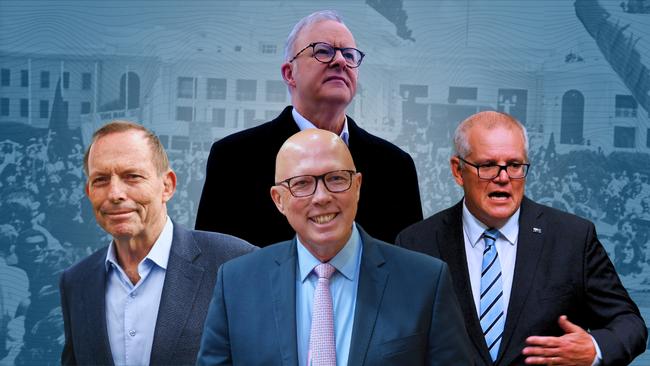
It is a saga with a rich history. Indeed, John Howard in his opening run as Liberal leader was famously dismissed as “Mr 18 per cent” – a hopeless, unpopular conservative. In 2009 when Tony Abbott, another unpopular conservative, became Liberal leader the Labor Party was euphoric, sure he was unelectable. When Scott Morrison, another unpopular conservative, became Liberal leader, Labor began measuring the curtains for the Lodge.
Unpopular conservative leaders have a conspicuous record of electoral success. They perform strongly against the Labor Party notably in their first outing. In the end, Howard won four elections, Abbott won in 2013 and Morrison won in 2019.
In 2014 federal Liberal director, Brian Loughnane said: “History shows the successful Liberal leaders – Menzies, Fraser, Howard and Abbott – have come from the conservative side of the party. They secured the base and built upon it.” This is what Dutton is doing.
Every national election won by the Liberals since 1996 – Malcolm Turnbull’s 2016 victory aside – has been won by a leader from the conservative wing of the Liberal Party. Abbott and Morrison are examples of initially unpopular leaders who defied the orthodoxy and ran devastating campaigns against their Labor counterparts.
Labor has a bad record in judging Liberal leaders. After Morrison’s abject defeat in 2022, the Labor orthodoxy was that the Liberals would be consigned to opposition for years and that Dutton, an unpopular conservative, was unelectable and unlikely to revive Liberal fortunes.
Yet Dutton in 2½ years has achieved a polling position Labor once regarded as inconceivable. The latest Newspoll has the two-party preferred vote at 50-50 and Dutton leading Anthony Albanese on the question of leadership strength 60-44 per cent while the latest Freshwater poll has the Coalition heading Labor 51-49 per cent.
This is not yet a winning position for Dutton. But it is making Labor highly uncomfortable. Labor didn’t anticipate the factors that have assisted Dutton.
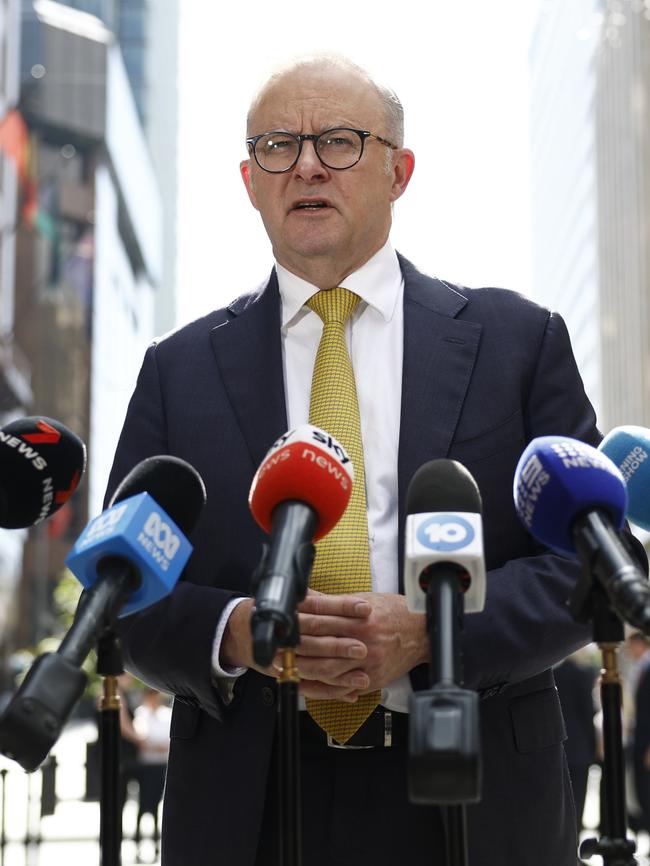
Dutton is unchallenged as leader now and likely for some years. His method is to consolidate the conservative vote and then appeal to the centre; his conservatism is essential to minimising breakaways to the right. His success has been to rebuild Coalition support in the mode of the Howard “battlers”; his tactics are to run relentlessly on values, attack Labor over cost-of-living pressures and target Anthony Albanese as a weak leader.
Analysis that the Liberals faced an existential dilemma after the 2022 election, given the success of the teals, is probably correct. Dutton is gradually moving the Liberals away from that existential dilemma but the party is far from out of the woods. The task of regaining many teal seats in 2025 remains daunting. Albanese is favoured to be a minority prime minister post-election.
Labor’s related blunder is to miss the truth – conservative Liberal leaders are highly effective at attacking Labor, its beliefs and its policies. This has been obvious for years. Yet progressive apologists typically don’t get this – they complain that Liberal leaders are too negative, too policy dumb or even get an easy ride from the media. This just misses the point.
The conservative attacks work because Labor’s policies and values are flawed. This was apparent during the Rudd-Gillard era and it is still apparent. You can’t have a 30 per cent primary vote and pretend you are in touch with the community. But what does Labor do? It just doubles down – it delivers more of the same when the same isn’t working. This is not smart politics. Paul Keating and Bill Kelty sounded the siren but nothing happened.
Albanese, in effect, rolled out the red carpet and turned Dutton’s leadership into a startling success. Albanese’s dilemma arises from the clever tactics he used to win office in 2022 – an agenda of reassurance, no pledges of big tax and big spending, and no frightening the public on economic policy.
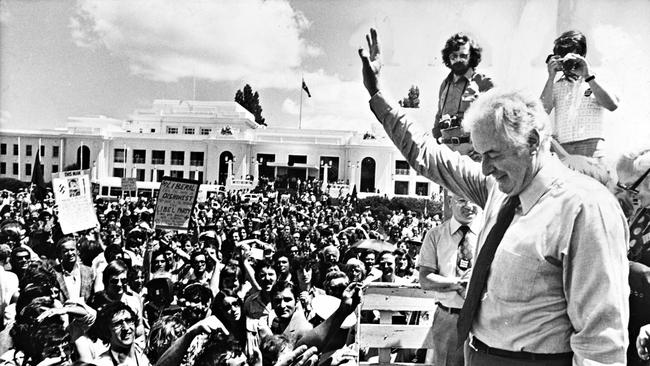
It worked a treat. But the voters still weren’t persuaded by Albanese. Who was he? Even Labor’s 2022 campaign review conceded Morrison’s unpopularity was the pivotal factor, not regard for Albanese. Labor fell into office.
This left open the big question: what did Labor really believe? And Labor’s still sorting that out. It is an unconvincing Labor government – devoid of Gough Whitlam’s panache, Bob Hawke’s command or Kevin Rudd’s assurance. The Albanese government has been cautious where it should have been strong and strong where it should have been cautious.
It needed to be far stronger running a tougher anti-inflation agenda, pushing a productivity agenda with guts, and installing better foundations for private sector investment; meanwhile it pushed too hard on the Indigenous voice, the pro-union IR changes, its gas-sceptic, pro-renewables posture, its across-the-board faith in state power and its immigration policy that lacked control and discipline.
Albanese gave Dutton the ultimate prize – his failure to deliver on his 2022 pledge to tackle the cost of living and increase living standards. There’s progress, but not enough. The upshot – Labor’s agenda is still suffocated by the cost-of-living bogy, now entering the third year. This is tied to Albanese’s conviction deficit – he hasn’t yet found a substitute for the voice, not since the public said no to his appeal from the heart.
The situation has been compounded by Albanese’s ineffective response to anti-Semitism since October 2023. Labor, again, thought this was smart politics – play down the problem, say the right things but do little, stay alert to the Muslim vote. But the perception, far beyond the Jewish community, is that Albanese looked a weak leader in responding to one of the gravest threats to community cohesion in this country since World War II. It wasn’t smart politics, just the reverse.
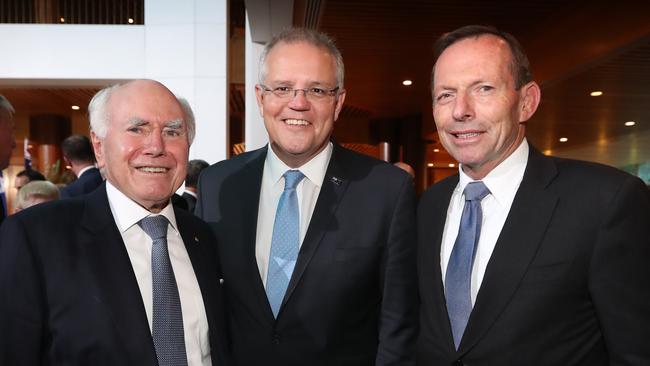
Dutton has exploited every blunder. The weaker Albanese looked, the stronger Dutton looked. And Labor sat pat. What the hell happened to its political brains?
In Australia’s polarised climate something else is starting to happen to Dutton. He’s not a Donald Trump type figure. But he’s becoming more than a Liberal leader – he is becoming a symbol for people who feel disenfranchised, overlooked by the system, denied a voice and patronised by the elites. These “forgotten people” in 2025 constitute a growing segment of the population and every move by progressives – from backing identity politics, bagging Australia Day, championing high immigration, altering the way people live, promoting distinctions on race, sex and gender, and deploring Dutton on the flag – only boosts Dutton’s profile.
The progressives don’t get it. Just as progressive Democrats in the US helped Trump to win, left progressives in Australia are Dutton’s best friends.
Dutton’s campaign on nuclear aspires to change the politics of climate change – the Coalition is in a better position being attacked for backing nuclear than being attacked as climate deniers. Again, the nuclear option is popular with the Coalition base but can appeal beyond that. It’s a big idea but just an idea.
The reality is that government-owned nuclear power stations constitute the biggest experiment in state power and nationalisation in Liberal Party history – the private sector isn’t interested, doesn’t believe the Liberal costings, bipartisanship is a pipe dream and realisation is a forlorn prospect. But the idea has traction. Labor will run a ferocious negative campaign – but it won’t necessarily work and it won’t save Labor from punishment over power bills. Is nuclear a trap for Dutton or for Labor?
Dutton’s biggest risk is the rollout of Coalition policies before the election. Unpopular conservatives often stumble at this hurdle – putting their money on the table. Labor hopes to thwart Dutton in the straight, calculating his skill as a policy advocate won’t match his skill as a Labor critic.


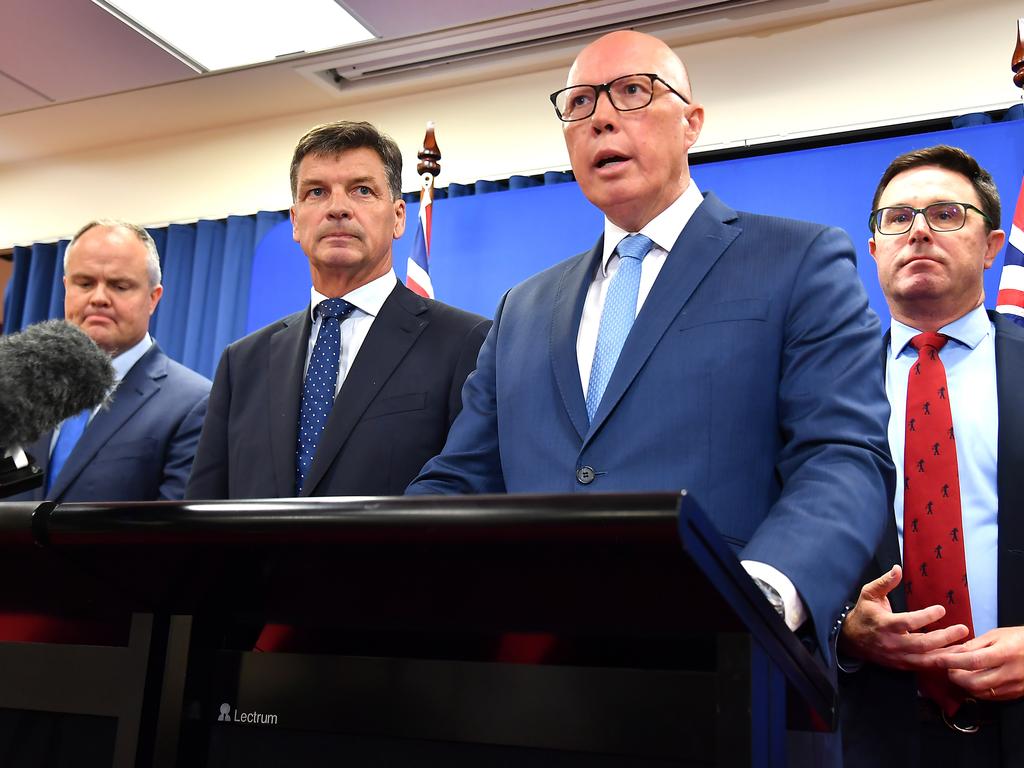
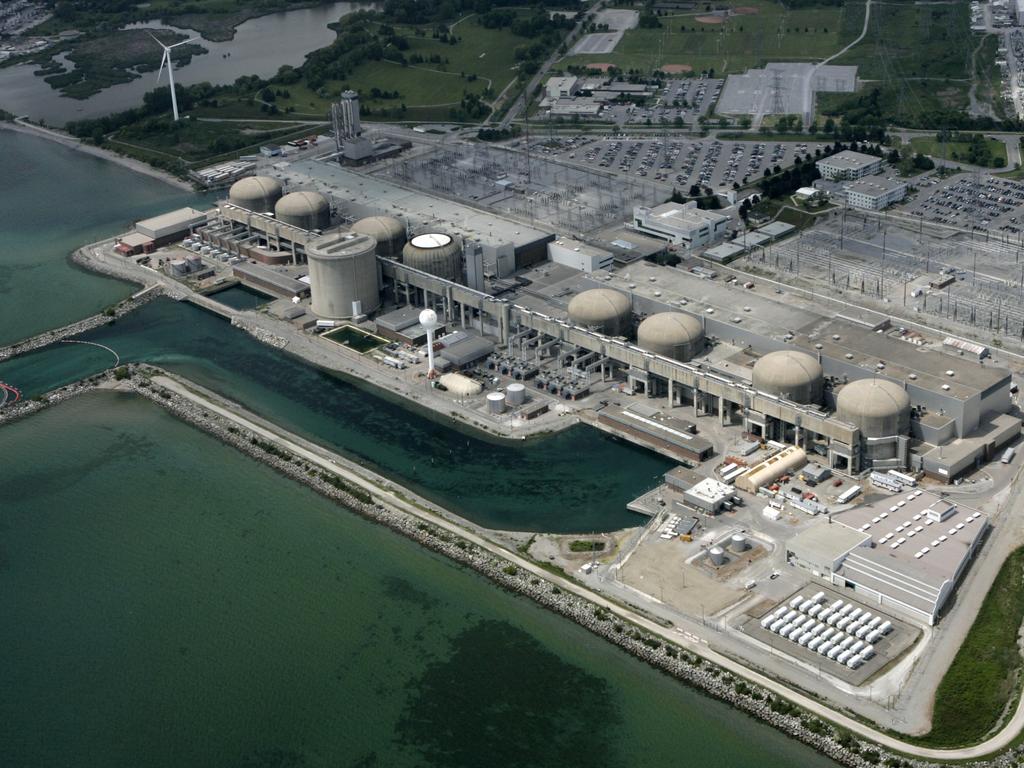



On the eve of the 2025 election year the structure of politics looks utterly familiar. Another Labor government, this time the Albanese government, has underestimated an initially unpopular conservative Liberal Party leader, this time Peter Dutton.